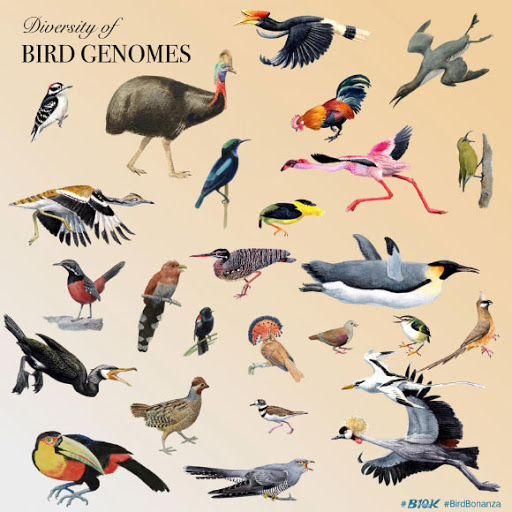BEIJING, Nov. 17, 2020 (BSS/XINHUA) — A research team has published a dataset of 363 genomes from about 92 percent of bird families and demonstrated the importance of dense species sampling for biodiversity research.
Led by researchers from the Kunming Institute of Zoology (KIZ) under the Chinese Academy of Sciences (CAS), the study was jointly conducted by Chinese and foreign institutions and museums.
Among the 363 sequenced genomes, 267 were newly released. They were mainly taken from avian tissue samples stored in museums around the world, which allowed the researchers to sequence the genome of rare and endangered birds, said CAS.
According to the research findings published as a cover feature in the journal Nature, the genomic resource is expected to offer new perspectives into evolutionary processes in cross-species comparative analyses and assist in efforts to conserve species.
The study is part of an initiative called the “Bird 10,000 Genome Project,” which aims to sequence the genomes of about 10,500 extant bird species. It is being jointly led by researchers from institutions including KIZ, the University of Copenhagen and the Rockefeller University in New York.



